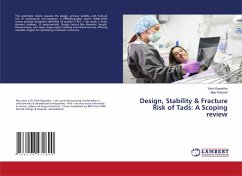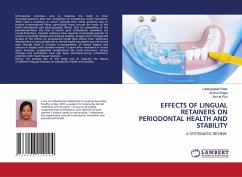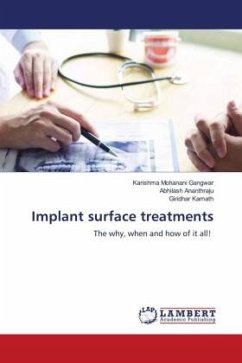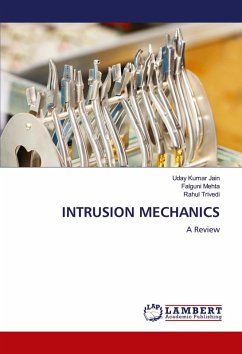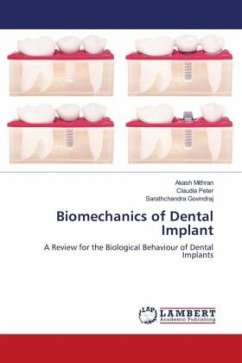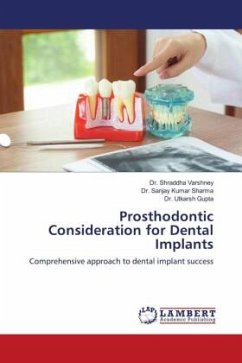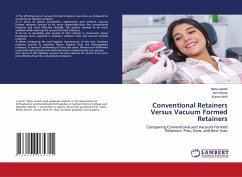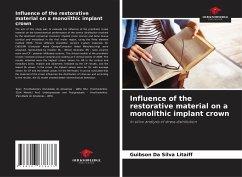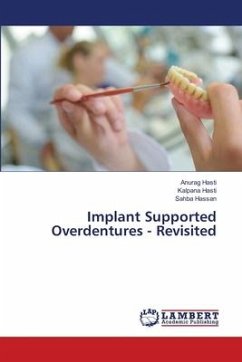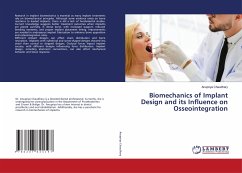
Biomechanics of Implant Design and its Influence on Osseointegration
Versandkostenfrei!
Versandfertig in 6-10 Tagen
53,99 €
inkl. MwSt.

PAYBACK Punkte
27 °P sammeln!
Research in implant biomechanics is essential as many implant treatments rely on biomechanical principles. Although some evidence exists on bone reactions to loaded implants, there is still a lack of fundamental studies. Current knowledge suggests better treatment outcomes when implants are placed carefully, in dense bone, with increased support, reduced bending moments, and proper implant placement timing. Improvements are needed in endosseous implant fabrication to enhance bone apposition and osteointegration rates.Different implant designs can affect strain distribution and bone resorption....
Research in implant biomechanics is essential as many implant treatments rely on biomechanical principles. Although some evidence exists on bone reactions to loaded implants, there is still a lack of fundamental studies. Current knowledge suggests better treatment outcomes when implants are placed carefully, in dense bone, with increased support, reduced bending moments, and proper implant placement timing. Improvements are needed in endosseous implant fabrication to enhance bone apposition and osteointegration rates.Different implant designs can affect strain distribution and bone resorption. Implants with cylindrical and screw-shaped designs showed less strain than conical or stepped designs. Occlusal forces impact implant success, with different designs influencing force distribution. Implant design, including abutment connections, can also affect mechanical behavior and tissue response.





